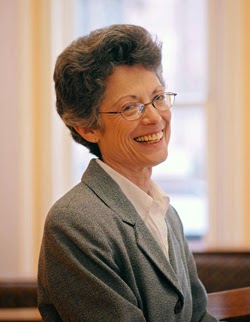.jpg) |
| Dr. Anicetus Temba Deputy Treasurer of the NY-TZ Community Powering Potential Advocate |
Dr. Anicetus Temba has always been a man
with a compelling vision for himself and his people. A native of Tanzania,
Temba began his journey with a primary education in Moshi followed by
attending Laming Secondary School. He acquired higher education at Dar es
Salaam Technical College before going to Mexico Polytechnic - formerly CENETI (Centro National Technical Industrial) - for industrial
engineering and a specialty in electro-mechanics. His foresight propelled him towards Colorado
Technical University for a Master’s in Business Science with a specialization
in information technology, project management and industrial transformation. Walden University would
further establish his credentials with a Ph.D. in Applied Management, Decision Science and Information Management Systems.
This standard of
educational excellence is the defining characteristic of the current Deputy Treasurer of the New York-Tanzanian Community, an organization established in 2011 that has extended welcome arms to Powering Potential's efforts.
A successful businessman in food processing systems and a scientific thinker, Dr. Temba emphasizes the importance of making the transition from Tanzanian to American culture to his people. “I came here first in 1976, then returned to the US in 1980 to stay on as a resident,” he recollects. “It was difficult because for a long time Tanzanians here were separated into groups based on the region they came from back home,” he remembers. “This changed when we decided to connect the Tanzanian Community through the Tanzanian Embassy to establish board members and an executive committee.”
A successful businessman in food processing systems and a scientific thinker, Dr. Temba emphasizes the importance of making the transition from Tanzanian to American culture to his people. “I came here first in 1976, then returned to the US in 1980 to stay on as a resident,” he recollects. “It was difficult because for a long time Tanzanians here were separated into groups based on the region they came from back home,” he remembers. “This changed when we decided to connect the Tanzanian Community through the Tanzanian Embassy to establish board members and an executive committee.”
Temba took the position
of Deputy Treasurer to ensure that all activities within the community are well
coordinated and the leadership is all working together. He stressed the
importance of focusing on education, teaching Swahili, technology and knowledge transference and getting others
involved with their cause. Social interaction, he said, is vital to the Tanzanian people.
When asked how he first
got involved with Powering Potential, Temba chuckles at the memory.
“Photography is my hobby. I met Janice at the Tanzanian Mission to the United Nations by chance. She looked
like someone I needed to know, so I decided to take her picture. She ended up
giving me her card. ”
He found himself
extremely impressed with Founding Executive Director Janice Lathen and the Educating-Through-Technology program. Temba would later invite her to give a presentation in
Harlem for the NY-TZ Community, which would lead to inviting Ms. Lathen to become a member.
Dr. Temba believes
Tanzania requires more quality exposure so that its people are no longer invisible.
“The Powering Potential educational platform has big potential not just for
Tanzania, but all of Africa,” Temba remarked. “The impact itself is going to
expose Tanzanians to the outside world. The rate of knowledge will be
incredible.
In this situation, Dr. Temba
has pledged to continue increasing membership with the NY-TZ Community while
spreading awareness of our cause. Powering Potential is certainly thankful to
have such a visionary advocate helping us achieve true educational reform.
